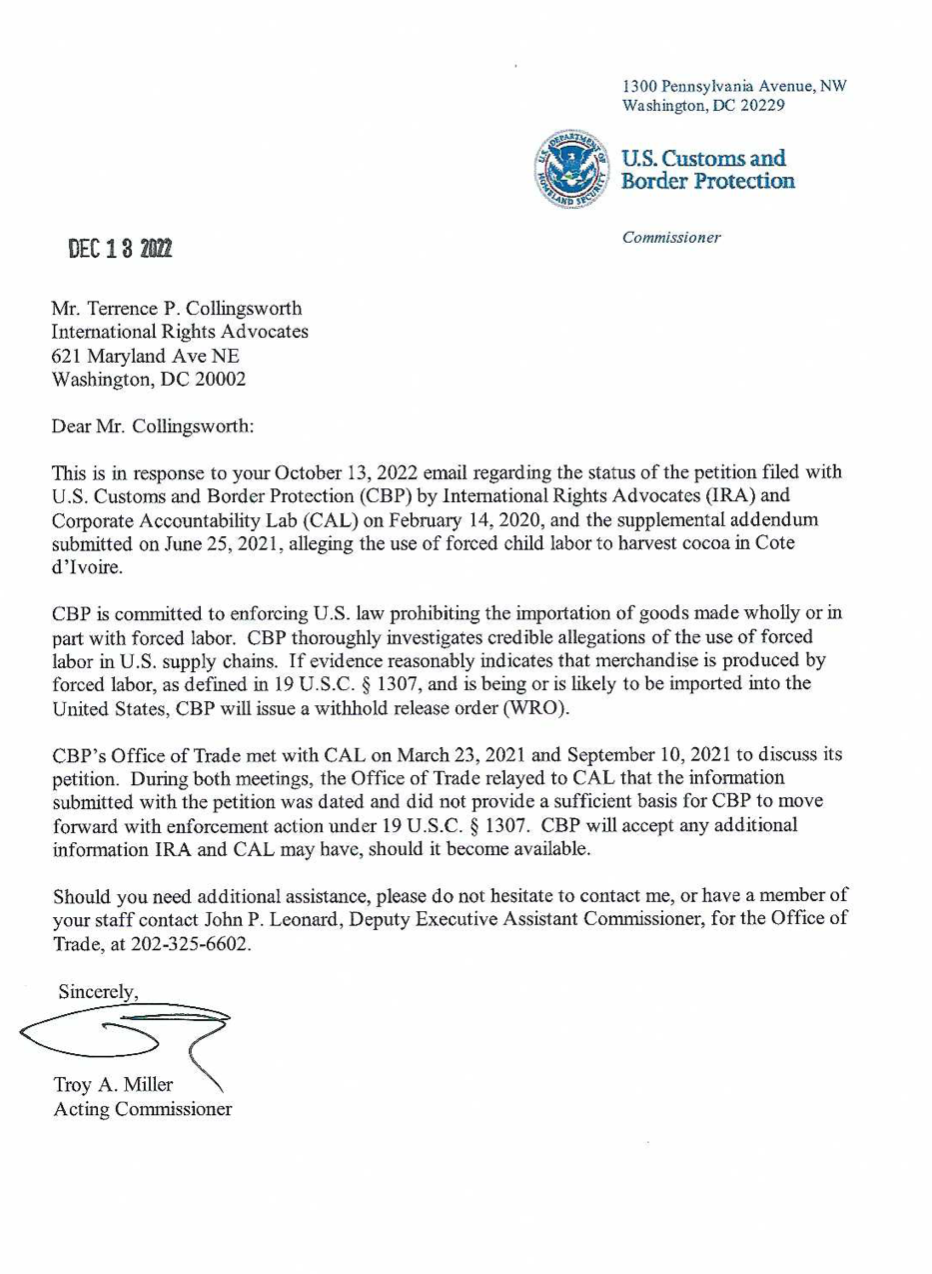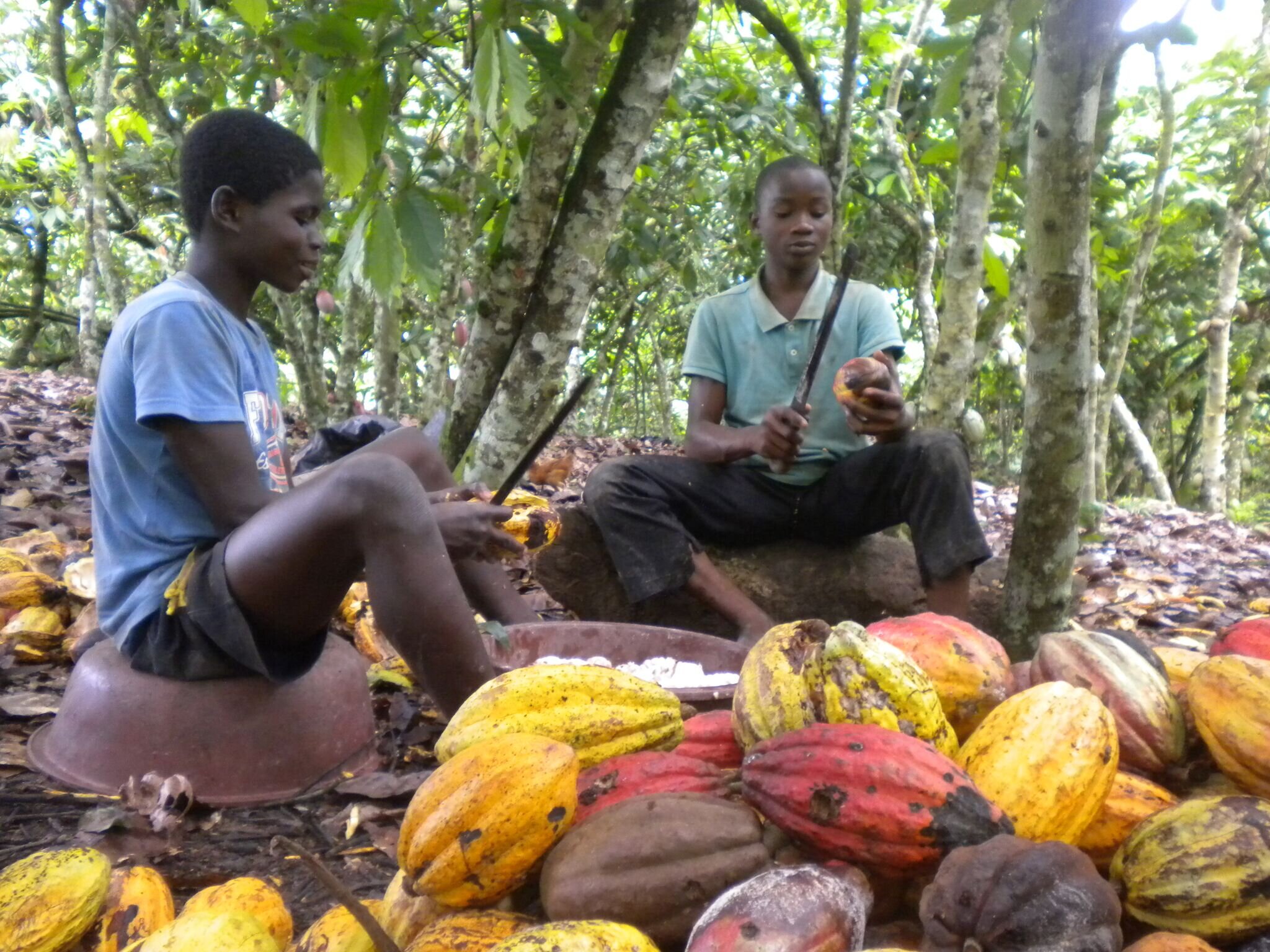(San Francisco, California) In a groundbreaking resolution passed on Tuesday, April 6, San Francisco County Board of Supervisors called for Mars, Nestlé, and other major chocolate producers to immediately cease the use of child slave labor in their cocoa supply chains.
The Resolution describes the inhumane and illegal working conditions in today’s cocoa industry. Over 1.5 million children are illegally involved in cocoa harvesting and production, mainly in West African nations like Côte d’Ivoire and Ghana, forced to endure hazardous working conditions for little or no pay.
Supervisor Dean Preston was a strong supporter of the resolution, arguing that it is past time for Mars, Nestlé, and other major chocolate producers to stop their use of child forced labor.
"The board passed a unanimous vote, a clear message to Mars and Nestlé that it’s time to stop utilizing child forced labor in global cocoa supply chains,” says Preston. “It’s a tragic reality for children in West Africa, and despite international condemnation and empty promises to change by these corporations, the issue persists.”
Despite decades of assurances that they will do better, major multinational chocolate companies like Mars, Nestlé, and Hershey have taken inadequate steps and ultimately failed to change their cocoa sourcing patterns in order to guarantee an ethical supply chain. According to Terry Collingsworth, Executive Director of IRAdvocates, these chocolate companies in particular have been full of empty promises when it comes to eradicating child slave labor in their supply chains.
“IRAdvocates and other organizations have been working for decades to get the large cocoa companies to keep their promise made in signing the 2001 Harkin-Engle Protocol to stop using child labor to harvest their cocoa in Côte d’Ivoire,” explains Collingsworth. “The cocoa companies have made crystal clear that they won't keep this promise unless a community devoted to ending child slavery in 2021 comes together to stop them.” Collingsworth hopes this recently passed resolution will serve as a model for concerned residents in cities and towns across the country.
Other chocolate companies— with much fewer resources than multinationals like Mars— are able to ethically source their cocoa; showing that slave free chocolate is an achievable goal.. Instead, major chocolate producers have consistently demonstrated that they care more about profit than they do about human welfare. Their race to source the cheapest possible cocoa, regardless of the human costs, has driven down industry standards and facilitated gross human rights violations that break international, domestic, and California law.
This resolution passed by the San Francisco County Board of Supervisors is a strong step forward to show Mars, Nestlé, and other major chocolate producers that the residents of San Francisco are committed to holding companies responsible for their human rights violations.
Consumers have more power to create positive change than they might realize, explains Ayn Riggs, Executive Director of advocacy organization Slave Free Chocolate.
“Chocolate is a consumer product, which means when it comes to the eradication of child slavery in the industry, we, the consumers, have all of the power,” says Riggs. “And when this happens, it won't just be a win for the 1.5 million children working illegally in the chocolate industry but a win for humanity as well."





